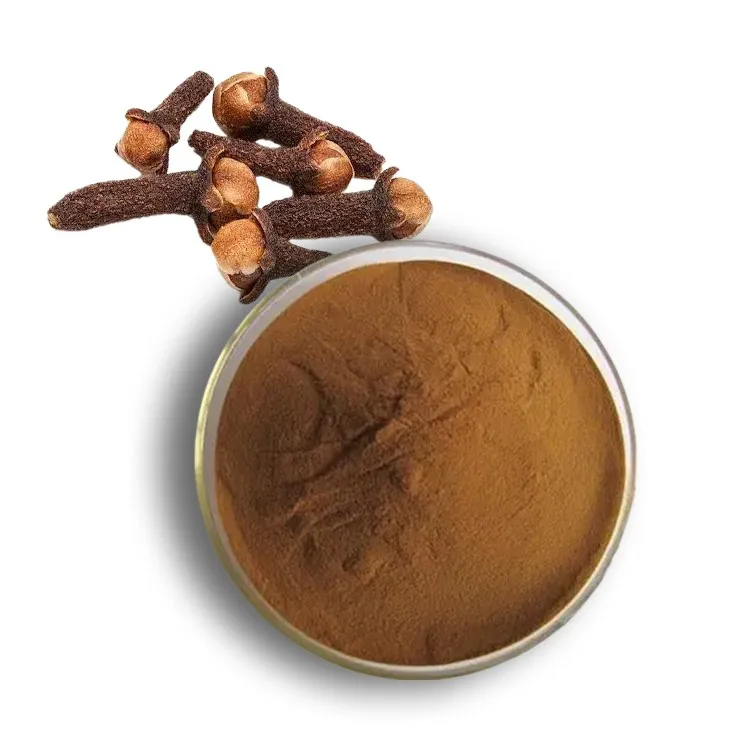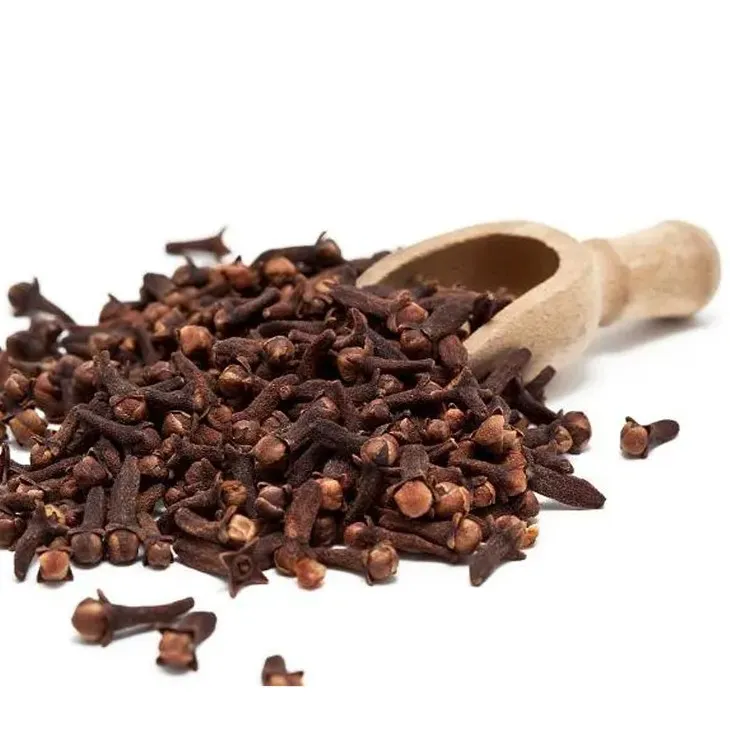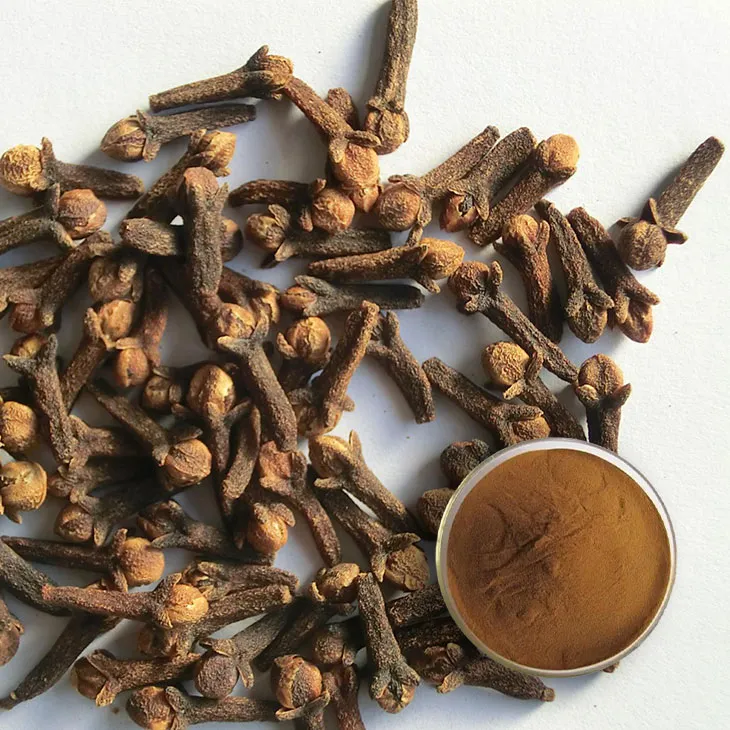- 0086-571-85302990
- sales@greenskybio.com
How to make powder with clove powder.
2024-11-28

1. Introduction
Clove Powder is a wonderful ingredient that has been used for centuries in various applications, from culinary to medicinal. Making powder from Clove Powder itself might seem a bit redundant at first, but there are actually different levels of refinement and processes involved that can yield different results. This article will explore the traditional and modern ways of creating powder from Clove Powder, quality control aspects, and the significance of using clove powder in different scenarios.

2. Traditional Ways of Making Powder from Clove Powder
2.1 Mortar and Pestle Method
- The mortar and pestle is one of the most ancient tools for powder making. To use it with clove powder:
- First, ensure that your mortar and pestle are clean and dry. Any moisture can affect the quality of the final powder.
- Take a small amount of clove powder, say about 5 - 10 grams depending on the size of your mortar. Place it in the mortar.
- Begin to grind gently at first. Use a circular motion to break down any lumps in the clove powder. As you grind, you will notice that the powder becomes finer.
- Continue this process for about 5 - 10 minutes. The time may vary depending on how fine you want the powder to be. If you are aiming for an extremely fine powder, you may need to grind for a longer period.
- Once you are satisfied with the fineness, you can transfer the newly refined clove powder to a clean, dry container for storage.
2.2 Using a Grinding Stone
- In some traditional settings, a grinding stone is used.
- Place the clove powder on the flat surface of the grinding stone.
- Use the smaller, handheld stone to apply pressure and move in a back - and - forth or circular motion over the clove powder. This action grinds the powder further.
- Similar to the mortar and pestle method, keep grinding until the desired fineness is achieved. However, this method may require more physical effort and skill compared to using a mortar and pestle.

3. Modern Ways of Making Powder from Clove Powder
3.1 Electric Spice Grinders
- Electric spice grinders are a convenient modern alternative. Here's how to use them with clove powder:
- Pour a suitable amount of clove powder into the grinder. It is advisable not to overfill it, usually filling it about half - full is a good start.
- Secure the lid of the grinder properly. This is important to prevent any spillage during the grinding process.
- Turn on the grinder. Most electric spice grinders have a single - button operation. Let it run for about 10 - 30 seconds depending on the power of the grinder and the fineness you desire.
- After grinding, turn off the grinder and wait for a few seconds to let the powder settle before opening the lid. This helps to avoid any powder flying out.
- Pour the ground clove powder into a clean container for storage.
3.2 Blenders
- Some blenders can also be used to make powder from clove powder, especially high - power blenders.
- Add the clove powder to the blender jar. Again, do not overfill it to ensure proper blending.
- Set the blender to a low or medium speed at first. This helps to break up the powder gradually without creating too much heat which could potentially affect the flavor or properties of the clove powder.
- Gradually increase the speed if needed and blend for about 30 seconds to a minute. Keep an eye on the consistency of the powder.
- Once the powder is of the desired fineness, turn off the blender and transfer the powder to a storage container.

4. Quality Control in Making Clove Powder
4.1 Purity of the Original Clove Powder
- The quality of the powder made from clove powder depends greatly on the purity of the original clove powder. Ensure that the starting clove powder is free from contaminants such as dirt, foreign particles, or other spices.
- Buy clove powder from reliable sources. Look for products with good reviews or certifications if possible. For example, organic certifications can indicate a higher quality and purity of the clove powder.
4.2 Fineness and Consistency
- Depending on the intended use, the fineness and consistency of the powder are important. For example, if it is to be used in a fine - textured spice blend, a very fine powder is required.
- Use sieves to check the fineness. Pass the ground clove powder through different mesh sieves. If a large amount of powder remains on a coarser sieve, it may need further grinding.
- Consistency in fineness throughout the batch is also crucial. Unevenly ground powder can lead to inconsistent flavor and performance in applications such as cooking or in medicinal preparations.
4.3 Storage Conditions
- Proper storage of the clove powder is essential for maintaining its quality.
- Store the powder in an airtight container. This prevents moisture absorption and exposure to air which can cause oxidation and spoilage.
- Keep the container in a cool, dry place, away from direct sunlight. High temperatures can degrade the quality of the clove powder over time.
5. Significance of Using Clove Powder
5.1 Culinary Significance
- Clove powder is a popular spice in the culinary world. It adds a warm, spicy, and slightly sweet flavor to dishes.
- In baking, it can be used in cakes, cookies, and bread. For example, a small amount of clove powder in a gingerbread recipe gives it a unique and rich flavor.
- In savory dishes, it pairs well with meats such as pork and beef. It can be used in marinades or rubs to add depth of flavor.
- Clove powder is also an essential ingredient in many spice blends, like garam masala in Indian cuisine and quatre - épices in French cuisine.
5.2 Medicinal Significance
- Traditionally, clove powder has been used for its medicinal properties.
- It has antimicrobial properties. It can help in fighting against certain bacteria and fungi, which is why it has been used in oral health products. For example, some toothpastes contain clove powder or its extracts to help combat gum infections.
- Clove powder may also have anti - inflammatory effects. It can be used in traditional medicine to relieve pain and inflammation, such as in the case of toothaches. A poultice made with clove powder can be applied to the affected area for some relief.
- It is also believed to have digestive benefits. Consuming a small amount of clove powder may help in soothing an upset stomach and improving digestion.
5.3 Cosmetic Significance
- In the cosmetic industry, clove powder is used for its various properties.
- It has a pleasant aroma which can be used in perfumes and scented products. The spicy and warm scent of clove powder can add a unique and exotic touch to fragrances.
- Clove powder may also have antioxidant properties. In skin care products, it can potentially help in protecting the skin from free radical damage, which can lead to premature aging.
- Some hair care products use clove powder as it may help in promoting a healthy scalp. It can potentially reduce dandruff and improve the overall health of the hair.
6. Conclusion
Making powder from clove powder can be achieved through various traditional and modern methods. Quality control is essential to ensure the best results, whether it is for culinary, medicinal, or cosmetic use. The significance of clove powder in different fields makes it a valuable ingredient to work with. By understanding the processes and importance of using clove powder, one can make the most of this wonderful spice in different applications.
FAQ:
Q1: What are the traditional ways to make powder from clove powder?
Traditionally, one could use a mortar and pestle. First, take the appropriate amount of clove powder. Then, place it in the mortar and start grinding gently with the pestle in a circular motion. Keep grinding until the desired fineness is achieved. Another traditional method might involve using a simple hand - operated grinder where the clove powder is placed inside and turned by hand to be further processed into a finer powder.
Q2: What are the modern techniques for making powder from clove powder?
Modern methods often utilize electric grinders. These can be small home - use electric spice grinders. Just pour the clove powder into the grinder chamber and run the grinder for a short period, usually a few seconds to a minute depending on the quantity and the desired fineness. Industrial - scale production might use more sophisticated machinery like high - speed pulverizers which can quickly and efficiently turn clove powder into an even finer powder with precise control over the particle size.
Q3: How important is quality control in making powder from clove powder?
Quality control is extremely crucial. Firstly, it ensures the purity of the final powder. Contaminants in the original clove powder need to be removed during the powder - making process. Secondly, it controls the fineness of the powder. Different applications may require different levels of fineness, and proper quality control measures can ensure that the powder meets the specific requirements. Also, quality control helps in maintaining the consistency of the product, which is important for both commercial and home - use purposes.
Q4: What is the significance of using clove powder to make powder?
Clove powder has its own unique properties such as its distinct flavor and aroma. When making powder from it, these properties can be concentrated or modified in a certain way. In cooking, for example, a finer powder made from clove powder can distribute the flavor more evenly in a dish. In traditional medicine, the process of making powder from clove powder can potentially enhance the bioavailability of its active compounds, making it more effective for certain health - related applications.
Q5: What factors can affect the quality of the powder made from clove powder?
The quality of the powder can be affected by several factors. The starting quality of the clove powder is important. If the original clove powder is of low quality, it will be difficult to produce high - quality final powder. The equipment used for powder making also plays a role. For example, if the grinder is not clean or not functioning properly, it can introduce impurities or result in an uneven powder. Environmental factors such as humidity can also impact the powder - making process. High humidity might cause the clove powder to clump together, affecting the grinding process and the final quality of the powder.
Related literature
- The Art of Spice Powder Making: Focus on Clove Powder"
- "Modern Techniques in Clove Powder - based Powder Production"
- "Quality Assurance in Clove - derived Powder Manufacturing"
- ▶ Hesperidin
- ▶ citrus bioflavonoids
- ▶ plant extract
- ▶ lycopene
- ▶ Diosmin
- ▶ Grape seed extract
- ▶ Sea buckthorn Juice Powder
- ▶ Beetroot powder
- ▶ Hops Extract
- ▶ Artichoke Extract
- ▶ Reishi mushroom extract
- ▶ Astaxanthin
- ▶ Green Tea Extract
- ▶ Curcumin Extract
- ▶ Horse Chestnut Extract
- ▶ Other Problems
- ▶ Boswellia Serrata Extract
- ▶ Resveratrol Extract
- ▶ Marigold Extract
- ▶ Grape Leaf Extract
- ▶ blog3
- ▶ blog4
-
Mulberry Extract Suppliers.
2024-11-28
-
Active components in aguaje extract.
2024-11-28
-
Standard - process cocoa extract.
2024-11-28
-
Organic Saw Palmetto Extract Powder Factory.
2024-11-28
-
Suppliers of Organic Açai Extract Powder.
2024-11-28
-
Extraction process of black pepper extract.
2024-11-28
-
Wholesale L - Tyrosine Suppliers.
2024-11-28
-
The best milk thistle extract in 2024.
2024-11-28
-
Sophora Japonica Flower Extract
2024-11-28
-
Withania Somnifera Extract
2024-11-28
-
Artichoke Extract
2024-11-28
-
Buckthorn bark extract
2024-11-28
-
Shikone Extract
2024-11-28
-
Phyllanthus Emblica Extract
2024-11-28
-
Red Wine Extract
2024-11-28
-
Resveratrol extract
2024-11-28
-
Sea buckthorn Juice Powder
2024-11-28
-
Thunder God Vine Extract
2024-11-28





















